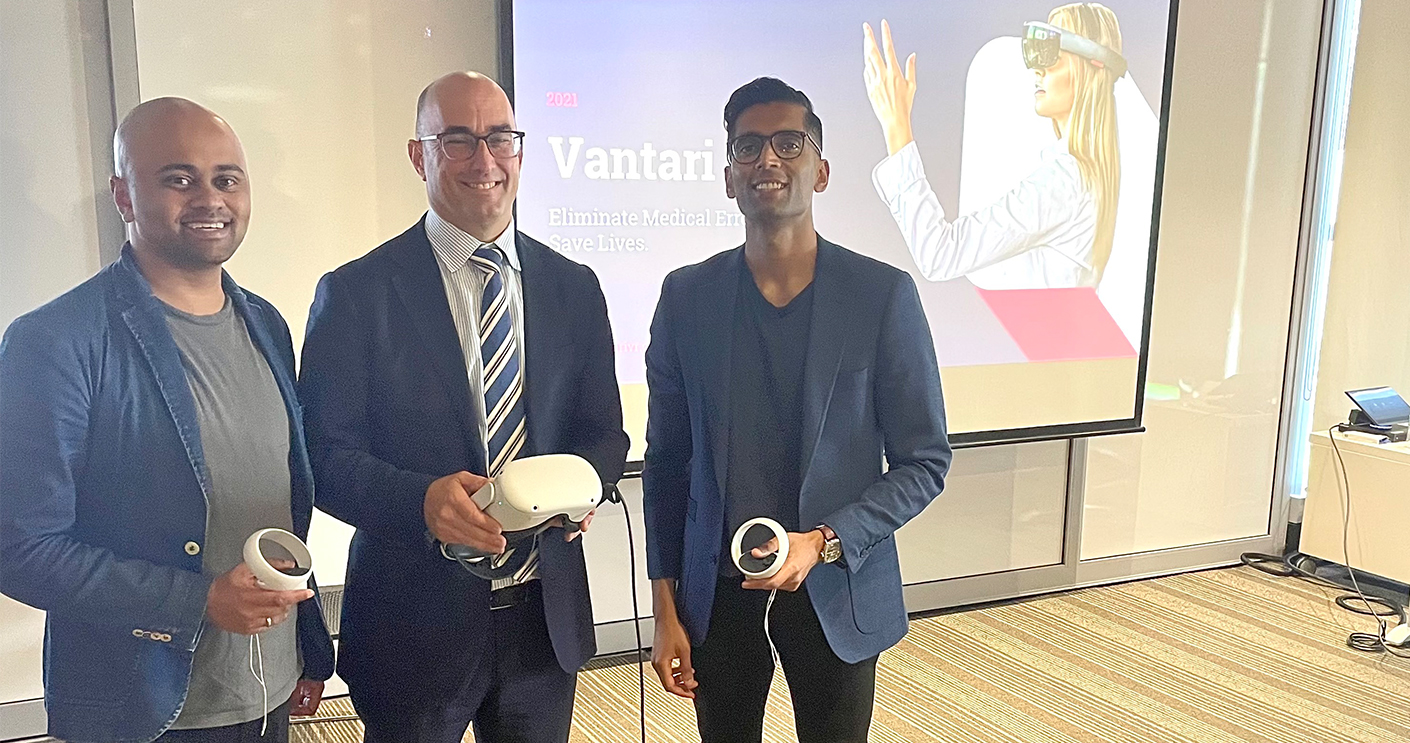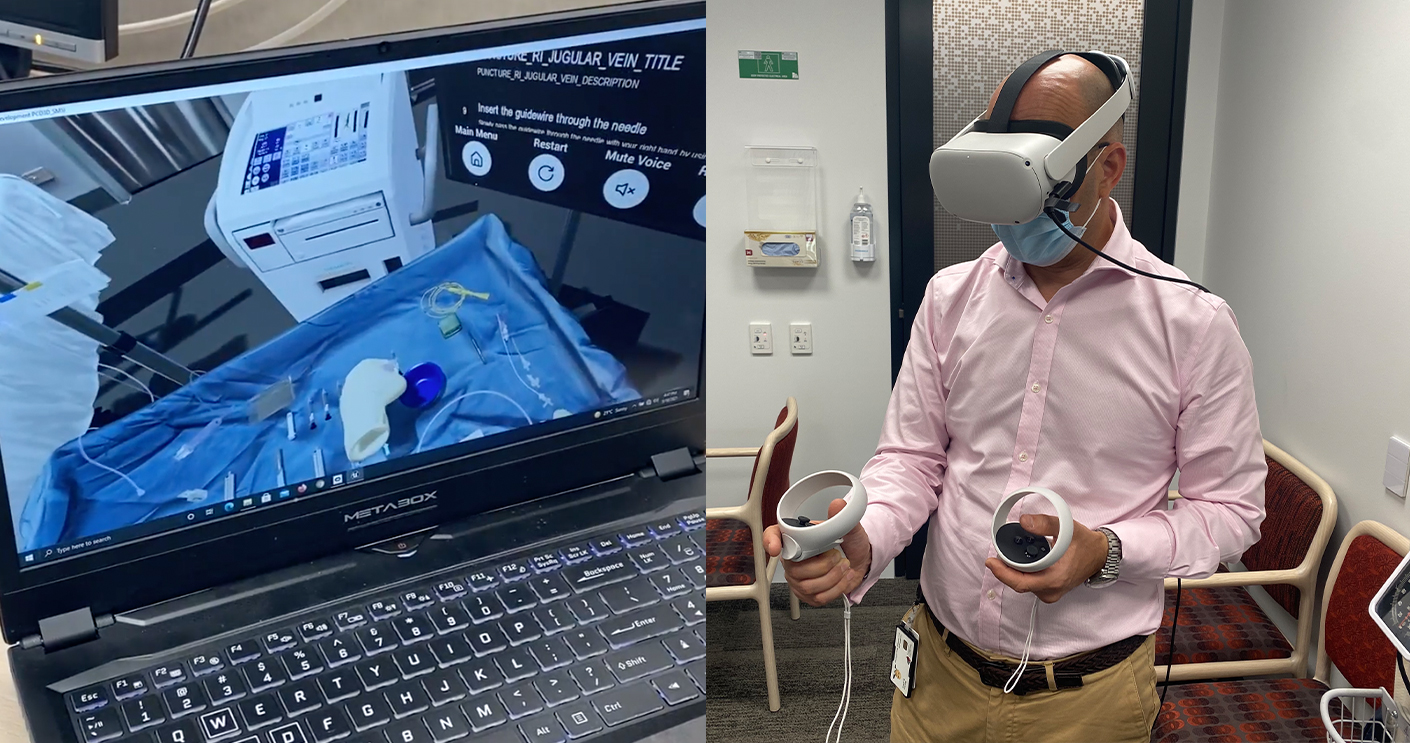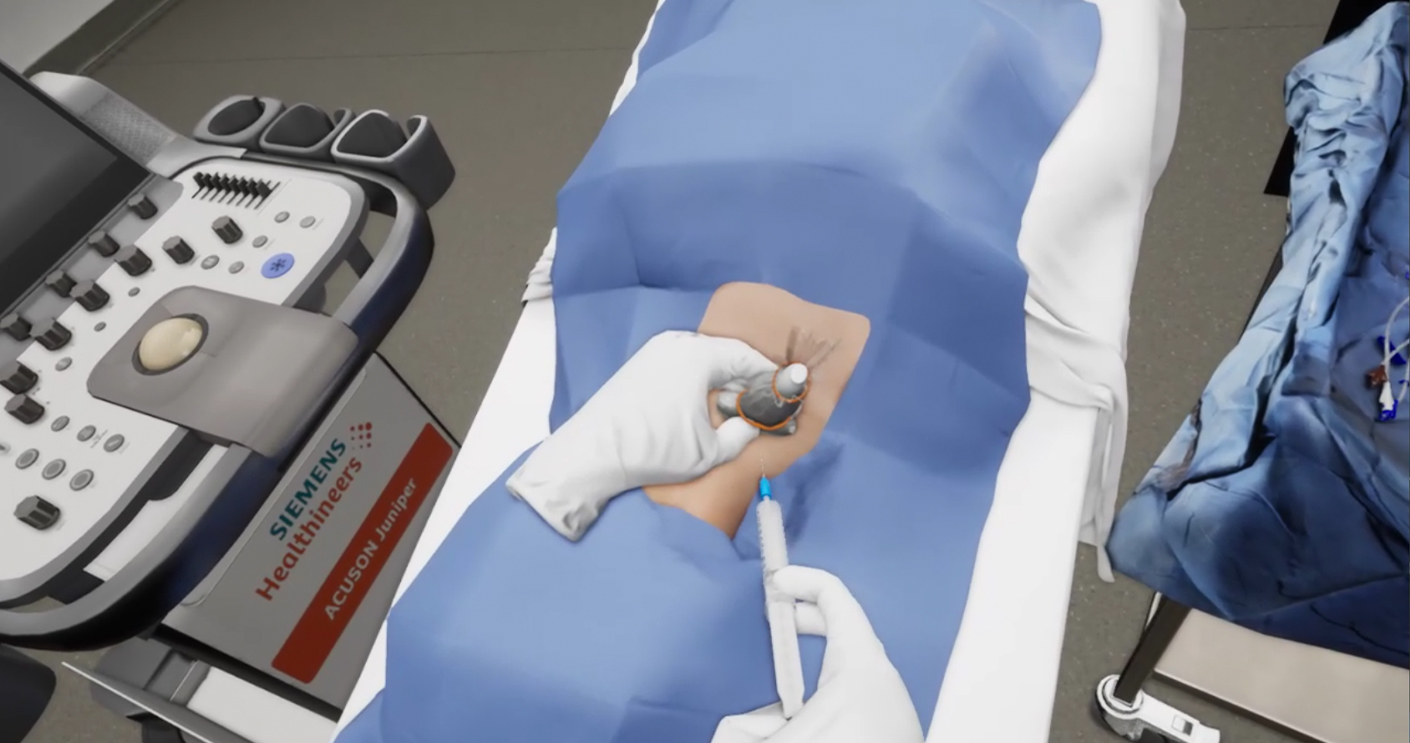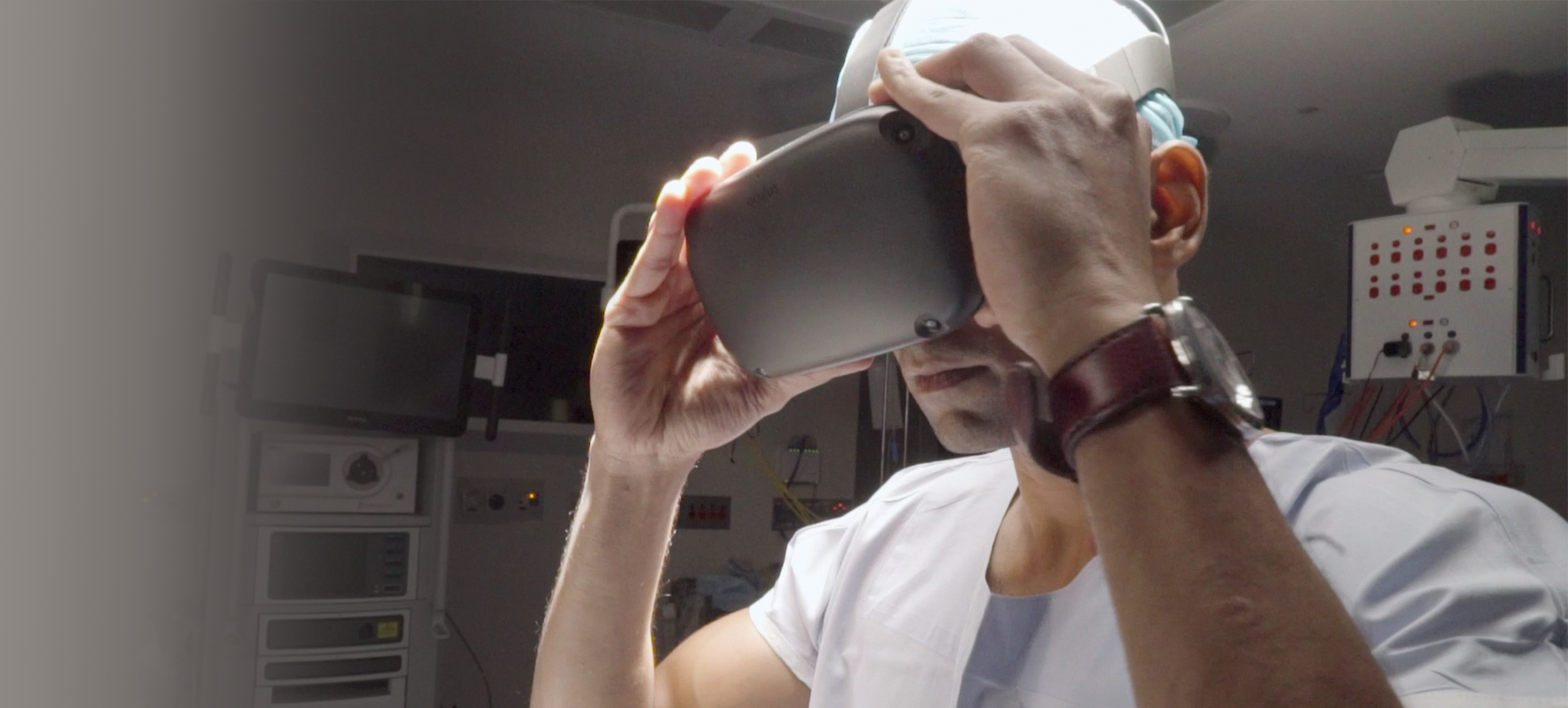An MQ Health cardiologist’s pandemic innovation that allowed doctors to continue training to perform a vital heart procedure is proving its value even after the end of lockdowns, with improved patient safety through shorter procedures and fewer errors.
Right heart catheterisation (RHC) is the gold standard for assessing patients with pulmonary hypertension, but doctors require specialist training like that provided by MQ Health.
Associate Professor Martin Brown, who specialises in cardiology for advanced heart failure and pulmonary hypertension, says that like so many others during the pandemic, he was forced to look for innovative solutions to continue his work remotely.
“We couldn’t have face-to-face training, so we developed a virtual reality (VR) program module to train cardiology registrars in RHC,” he says.
“That led to a collaboration with health technology company Vantari VR to design a VR training module based on our current RHC simulation workshops.

Dr. Vijay Paul, Co-CEO, Vantari VR; Associate Professor Martin Brown, MQ Health; Dr. Nishanth Krishnananthan, Co-CEO, Vantari VR
“The aim was to improve training, competency and confidence in performing this technique while enhancing diagnostic skills and reducing procedural errors, resulting in increased patient safety.”
The training is delivered via a laptop and VR headset. Clinicans perform virtual RHCs according to best-practice guidelines with dynamic imaging, monitoring and haptic feedback with the guidance of a virtual AI trainer.

Associate Professor Brown operating the VRRHC
Throughout the process, their performance is tracked in real time, including failed steps and proficiency scores.
Preliminary analysis has shown that after an initial learning curve associated with using VR and becoming familiar with the procedure, increased experience results in improved completion rates, reduced procedure time and fewer errors.

A view of the virtual reality interface
“We have now incorporated VR into part of our RHC training at MQ Health, and universities and medical schools around the world are also using our technology,” Associate Professor Brown says.
“While VR is used increasingly for medical training in several fields, no-one else has achieved what we have for RHC.”
Dr Nishanth Krishnananthan, Co-CEO of Vantari VR, could not be more excited with the collaboration.
“The VRRHC has been a huge success locally and in the US where clinicians are blown away by the fidelity, physics and dynamic imaging capabilities,” he says.
“The ability to improve patient outcomes by reducing error from these complex procedures – thanks to better training as well as ensuring accessibility for regional and remote healthcare centres – means we can democratise healthcare training and help cardiologists and clinicians no matter where they are.”


 Back to homepage
Back to homepage